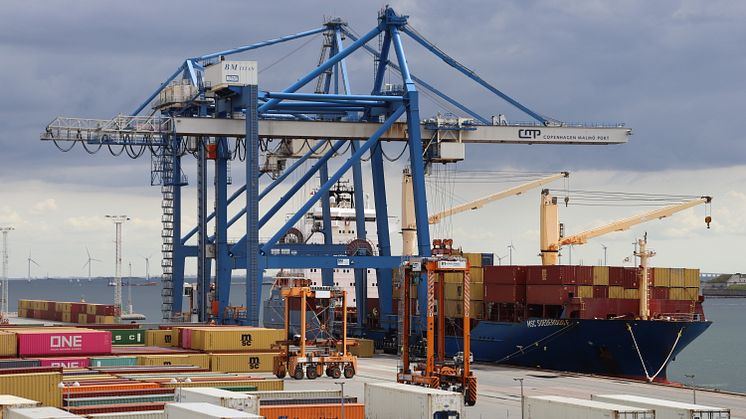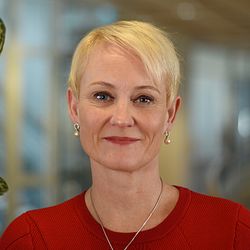
Press release -
CMP has fully phased in fossil-free fuel at its container terminal in Copenhagen
After phasing in HVO100 fuel, the fuel consumption in the container handling is now entirely fossil-free. This reduces the annual consumption of fossil diesel by over 286,000 litres and CO2e emissions by 640 tonnes.
Since November 2023, CMP has been gradually phasing in the renewable fossil-free fuel HVO100 (hydrogenated vegetable oil) at the container terminal in Copenhagen. Compared to the use of fossil diesel, HVO100 reduces CO2 emissions by as much as 90%. The container terminal’s large ship-to-shore (STS) cranes and work vehicles have for some time been powered by electricity from renewable energy sources. Originally, it was planned that the full phasing-in of HVO100 in Copenhagen would not take place until the commissioning of the new container terminal at Ydre Nordhavn in 2025.
By the end of 2023, the phase-in included terminal tractors, as well as empty container handlers and forklifts. In the first half of 2024, CMP’s new straddle carriers, with a battery-hybrid powertrain compatible with HVO100, were commissioned on parts of the current container terminal. Following this, during the summer of 2024 HVO100 was successfully tested on CMP’s older straddle carriers and from 1 August 2024, all vehicles and equipment in ordinary operation are thereby running fossil-free.
“We at CMP are very proud to be able to offer container terminal handling in Copenhagen without the use of fossil fuels – and this more than half a year ahead of the original schedule. This is an integral step in our green transition, as well as our customers’ and the entire transport sector’s green transition. The container terminal in Copenhagen is absolutely crucial for consumers and companies in the Copenhagen metropolitan area a capital area and Region Zealand as a whole – as it handles the vast majority of containers for the market in the eastern part of Denmark. It is therefore very important for us to have eliminated fossil fuels in our terminal operations and thereby support the phase-out of CO2 emissions from fossil fuels in Copenhagen as well as in Malmö,” comments Povl Dolleris Røjkjær Ungar, COO, Copenhagen Malmö Port.
CMP strives to be one of the world’s most sustainable ports. We have established a concrete goal to reach net zero emissions in our own operations by year 2025 – and climate positive by 2040 in accordance with Science Based Targets. Over the course of 2020–2023, CMP has reduced its CO2 emissions in its operations (GHG Scope 1+2) by 68%. This corresponds to an annual reduction of 1,477 tonnes of CO2e. In Malmö, HVO100 has already been deployed by CMP, which has reduced CMP’s emissions by more than an estimated 840 tonnes CO2e annually.
For further information, please contact:
Ulrika Prytz Rugfelt, Chief Communications & Sustainability Officer, Copenhagen Malmö Port AB
E-mail: ulrika.prytz@cmport.com, Telephone: +46 (0)70 252 00 98.
